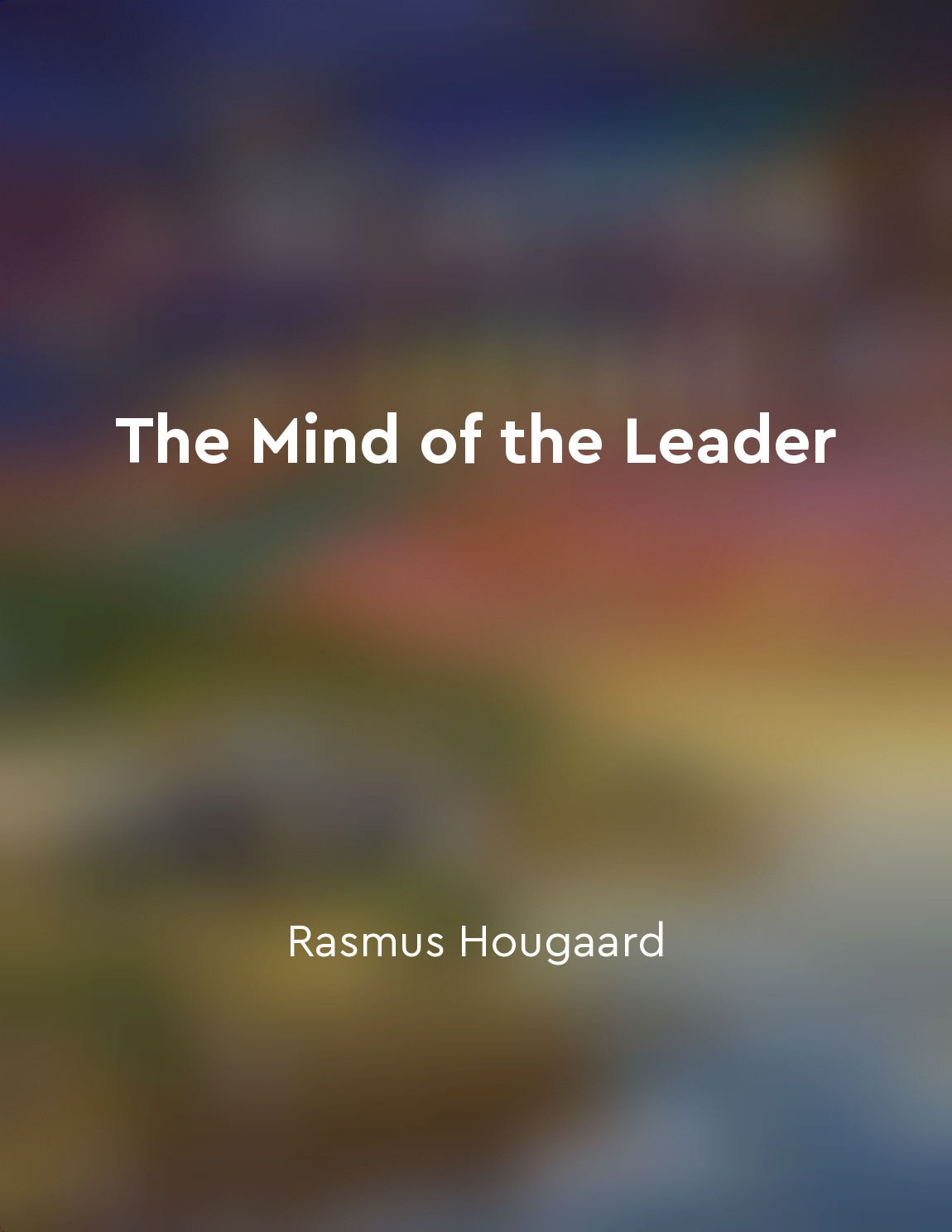The limitations of traditional leadership are becoming evident from "summary" of The End of Leadership by Barbara Kellerman
In the current landscape of leadership, it is becoming increasingly clear that traditional leadership models are no longer as effective as they once were. The hierarchical structures and top-down decision-making processes that have dominated leadership for so long are now being called into question. As Barbara Kellerman argues in "The End of Leadership," these limitations are becoming more evident as organizations face complex challenges that require a different approach. Kellerman points out that the nature of work is changing rapidly, with technology, globalization, and a more interconnected world reshaping how organizations operate. In this new environment, leaders must be more agile, adaptable, and collaborative than ever before. The old command-and-control style of leadership is simply not equipped to deal with the fast-paced and unpredictable nature of modern business. Moreover, the traditional leadership model is often based on the assumption that leaders have all the answers and must dictate decisions to their subordinates. This approach is no longer sustainable in a world where information is readily available and expertise is distributed throughout an organization. Leaders who cling to this outdated mindset risk alienating their team members and stifling innovation. Another key limitation of traditional leadership is its focus on individual leaders rather than collective leadership. Kellerman argues that leadership is not just about one person at the top calling the shots, but about a group of individuals working together to achieve a common goal. This shift towards shared leadership is essential for organizations to thrive in today's complex and interconnected world. In order to address these limitations, Kellerman suggests that organizations need to embrace a more inclusive and collaborative approach to leadership. This means empowering team members at all levels to contribute their ideas and expertise, fostering a culture of open communication and transparency, and promoting a shared sense of purpose and direction. By recognizing the shortcomings of traditional leadership models and embracing a more modern and inclusive approach, organizations can better navigate the challenges of today's fast-paced and complex business environment. The limitations of traditional leadership are becoming increasingly evident, and it is up to organizations to adapt and evolve in order to thrive in the years to come.Similar Posts
Use language to inspire and motivate team members
To create a motivated team, leaders must be intentional about the language they use. Words have power - they can either inspire...
Building on strengths improves communication and collaboration within teams
Building on strengths is a fundamental principle that can have a transformative impact on communication and collaboration withi...
Continuous learning is key to mastering the art of power
To truly excel in the realm of power, one must adopt a mindset of continuous learning. This philosophy acknowledges that knowle...

Leading with clarity and purpose to inspire others
Leading with clarity and purpose to inspire others is about being able to communicate your vision and goals in a simple and str...
Leadership is a skill that can be developed over time
Leadership is a skill that can be developed over time. It is not something that one is simply born with, but rather something t...

Leadership failures are rampant
Leadership failures are everywhere. They are prevalent in politics, business, education, and beyond. The evidence is indisputab...
